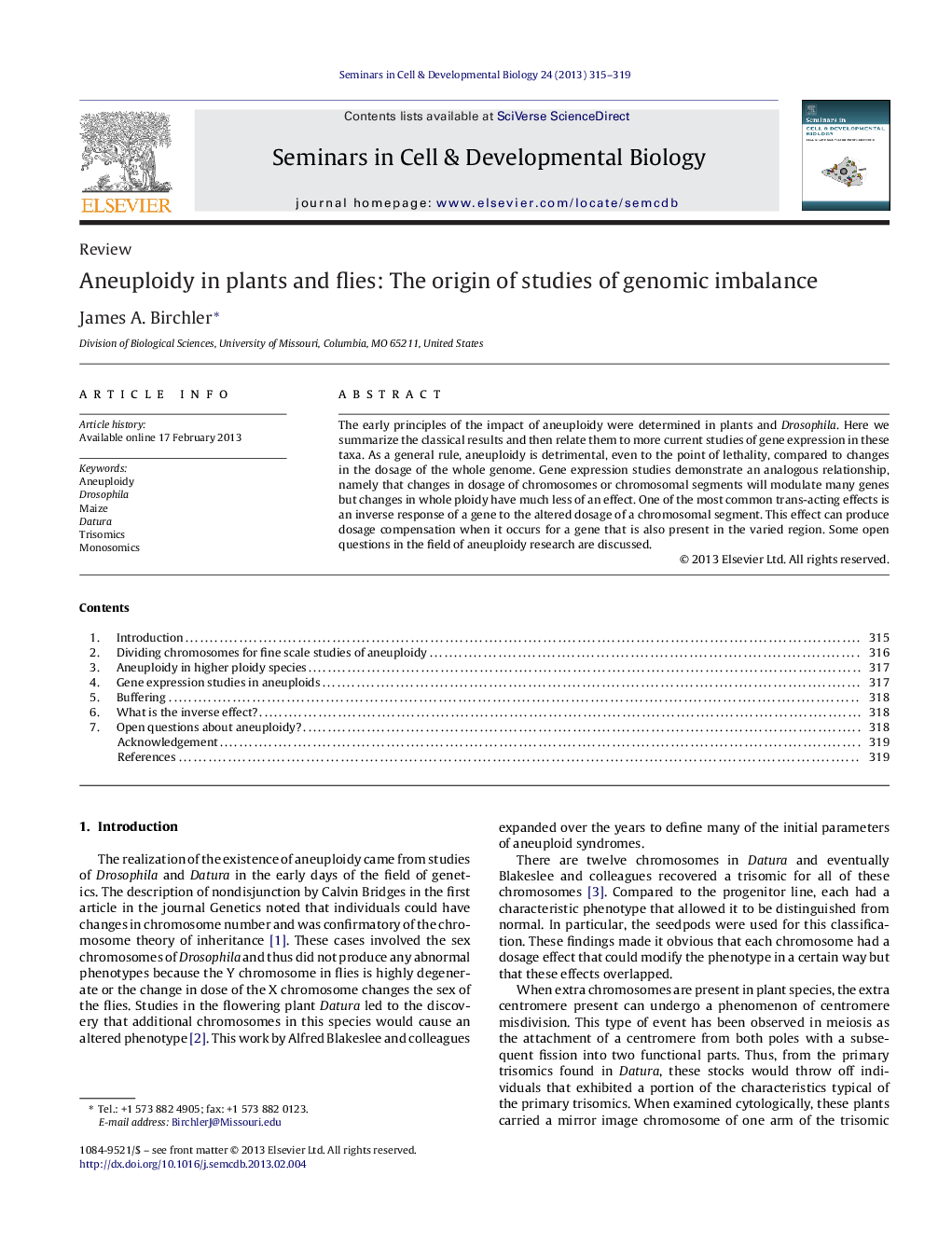| Article ID | Journal | Published Year | Pages | File Type |
|---|---|---|---|---|
| 2202724 | Seminars in Cell & Developmental Biology | 2013 | 5 Pages |
The early principles of the impact of aneuploidy were determined in plants and Drosophila. Here we summarize the classical results and then relate them to more current studies of gene expression in these taxa. As a general rule, aneuploidy is detrimental, even to the point of lethality, compared to changes in the dosage of the whole genome. Gene expression studies demonstrate an analogous relationship, namely that changes in dosage of chromosomes or chromosomal segments will modulate many genes but changes in whole ploidy have much less of an effect. One of the most common trans-acting effects is an inverse response of a gene to the altered dosage of a chromosomal segment. This effect can produce dosage compensation when it occurs for a gene that is also present in the varied region. Some open questions in the field of aneuploidy research are discussed.
► Early studies of aneuploidy were conducted in Datura and Drosophila ► As a general rule, aneuploidy is more severe than changes in dosage of the whole genome. ► Monosomy is typically more severe than the corresponding trisomy. ► Aneuploidy causes greater changes in gene expression than ploidy changes. ► The most common aneuploid effect on gene expression is an inverse correlation with chromosome dosage.
